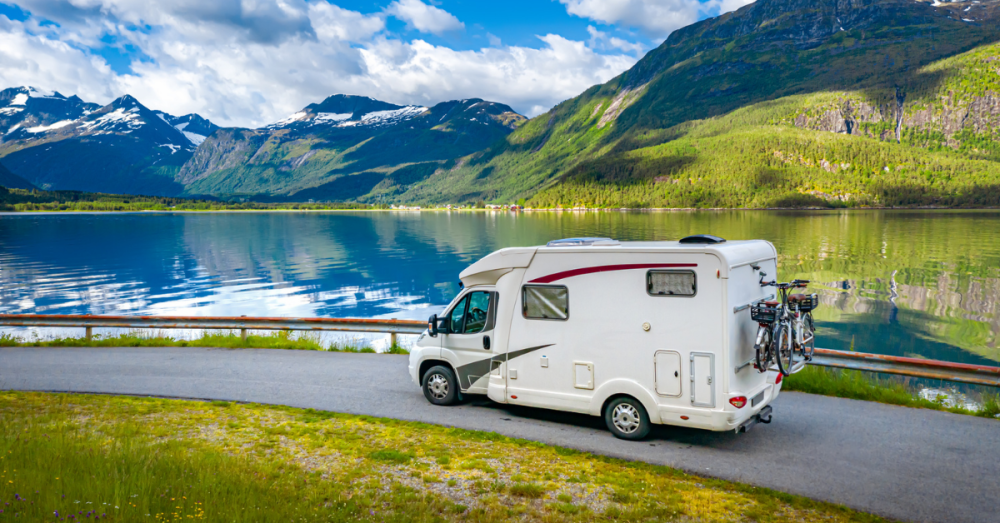Michigan RV Insurance: Debunking Common Misconceptions and Myths

Owning an RV can provide a world of benefits for your travel experience. However, if you’re a new RV owner, you may be confused about what RV insurance you do and do not need.
Because RVs are less common vehicles compared to cars and trucks, many RV owners fail to understand the world of RV insurance until after they’ve been in an accident. However, fully understanding Michigan RV insurance now can help ensure that you have the coverage you need and want during an accident.
Read on to learn common myths about Michigan RV insurance and the truths behind those misconceptions.
Myth #1: You Don’t Need RV Insurance if You Only Take Your RV Out Every Now and Then
Reality: RV insurance is mandatory in Michigan.
According to Michigan law, if your RV is a registered vehicle in Michigan and you drive it even on occasion, it must have insurance.
Michigan requires all motor vehicles within the state to have insurance coverage from a no-fault policy at minimum. A no-fault insurance policy can provide you with funds if you suffer an injury while using your RV. In Michigan, these policies must include the following coverages:
- Bodily injury and property damage
- Personal injury protection
- Property protection
These required coverages do not include coverage for damage to your vehicle or theft. As a result, we always recommend that our customers purchase collision coverage and comprehensive coverage as well.
Myth #2: If I’m Renting an RV, I Don’t Need to Purchase RV Insurance Coverage
Reality: You may be responsible for securing your own rented RV insurance coverage.
If you’re planning to rent an RV from a rental company for a short period, you may believe that securing insurance is the rental company’s responsibility. However, you’ll still need to make sure your RV is properly insured before taking it out on the road. Otherwise, you may be responsible for damages and injuries out of pocket.
Some car insurance policies extend coverage to rented RVs, but most do not. As a result, we recommend first checking with your insurer to see whether your car insurance policy would cover your rented RV.
If your auto insurance does not extend coverage to a rented RV, you may need to purchase insurance through the rental company instead. The company you’re renting from may have designated insurance companies that you can contact and arrange your policy with.
Otherwise, your rental company may tack the cost of basic insurance onto your daily rental price. Either way, you should triple-check your RV rental insurance coverage before driving away with your rented vehicle.
Myth #3: Collision Insurance for RVs Is a Waste of Money
Reality: Collision insurance can be a lifesaver.
If you are like many RV owners, you may only use your recreational vehicle a few times per year. As a result, you may believe that having the minimum insurance coverage is sufficient for the infrequent times you drive your RV.
While collision insurance is not mandatory in Michigan, it can be incredibly valuable. Even driving your RV infrequently puts you at risk of experiencing an expensive accident. RVs are bulky vehicles that take up a lot of space on the road, making accidents more likely while driving RVs compared to other cars.
Additionally, if you only drive your RV every now and then, you may not have much experience on the road, placing you at a higher risk of making a mistake that lands you in an accident.
Finally, whether you’re a good driver or not, accidents can sometimes be unpredictable and unavoidable. Having collision insurance coverage in place can ensure that you have the coverage you need to repair or replace your RV after an accident.
Myth #4: Comprehensive Coverage Is Only Necessary for When You Drive Your RV
Reality: You should maintain comprehensive coverage the entire time you own an RV.
Some RV owners choose to reduce their coverage during periods they do not drive their RVs, such as in the winter months. While pausing collision coverage may be a good idea during these months of inactivity, you should always maintain comprehensive coverage, even if you don’t plan to drive your vehicle for a while.
Comprehensive coverage insures you against damage to your vehicle that occurs outside of collisions. For example, many comprehensive policies cover repair costs associated with:
- Theft
- Vandalism
- Hail
- Fire
- Animal damage
Any of the above issues can occur on your property, while driving, or while parked in another location. As a result, comprehensive coverage can be valuable even if you plan to leave your RV parked on your property for an extended period.
Myth #5: Purchasing RV Insurance Is Complicated and Stressful
Reality: With Encore Insurance, buying RV insurance is a breeze.
Many new RV owners put off purchasing RV insurance as long as possible because they think the process will be confusing or stressful. However, at Encore Insurance, we make buying RV insurance as easy as possible.
First, we’ll discuss coverage options and help you choose the right policies and add-ons for your needs. Then, we’ll quote you with several companies to determine the most affordable coverage. Finally, we’ll present you with a list of policy options and help you select the best one.
Our Michigan RV insurance expertise allows us to recommend the best coverage at the most affordable costs. Contact our Encore Insurance Agency today at 248-466-0200 to get your free quote.
